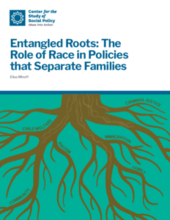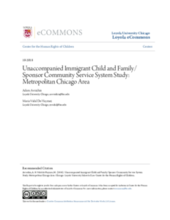Displaying 1161 - 1170 of 2176
This article describes the history and current status of the US Indian Child Welfare Act (ICWA), a bill designed to protect indigenous children in the US from being removed unnecessarily from their families of origin.
The current study examined how discrimination relates to adjustment outcomes in a sample of internationally, transracially adopted Korean Americans from the Minnesota Sibling Interaction and Behavior Study.
This qualitative study examines the academic pathways of 33 college students with a history or foster care placement, homelessness, or both, to better understand the ways in which forms of social capital influence the transition to college and early college experiences in the US.
By examining the roots of policies that separate families and their entanglement with racial prejudice and discrimination, this report makes the case that we must embrace an alternative path.
This report presents findings from a research project to (1) address the knowledge gap on children who are unaccompanied immigrants1 (“CUI”), with its focus on the Chicago metropolitan area, and (2) provide relevant information to stakeholders who can strengthen the systems that support these young people.
The objective of this study was to identify different kin and fictive kin network support profiles available to children in foster care and examine whether these profiles predict behavioral outcomes.
This study evaluates whether the psychometric properties of the Pediatric Symptoms Checklist-17 (PSC-17), a common behavioral health measure typically used as a dichotomous screening tool for mental health needs, support its use as a continuous measure for tracking behavioral health over time.
This paper explores the literature of the existing interventions that are specifically used with American Indian families affected by child abuse and neglect.
The purpose of the current study was to explore how adolescent mothers experienced pregnancy and parenthood within the context of residential foster care.
This secondary analysis of data describing 1186 maltreated children, drawn from the US National Survey of Child and Adolescent Well-Being II, examined racial disparities in their access to and receipt of needed services and in their caseworkers' case planning and engagement with caregivers.


